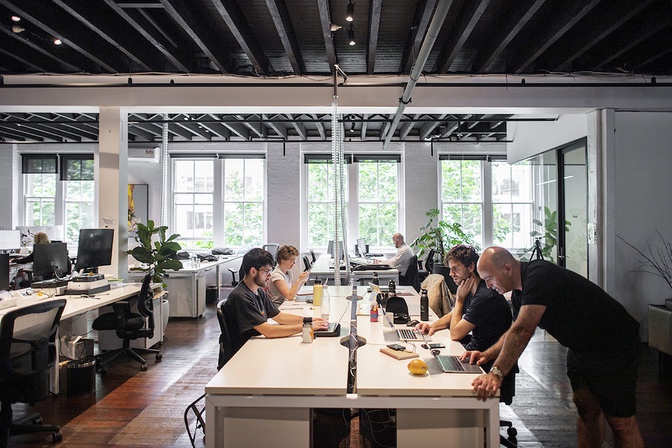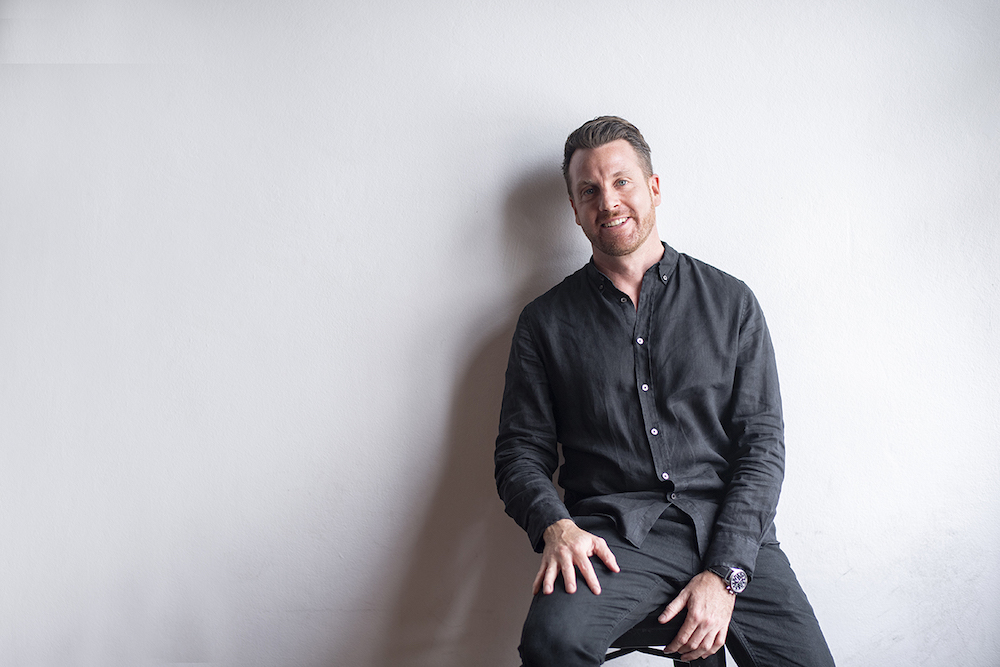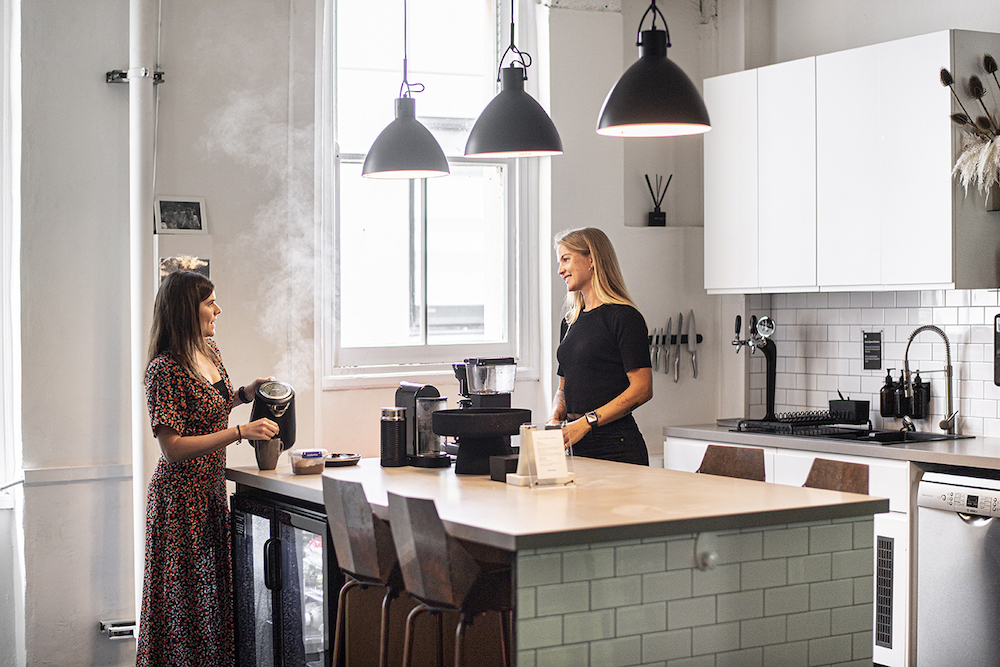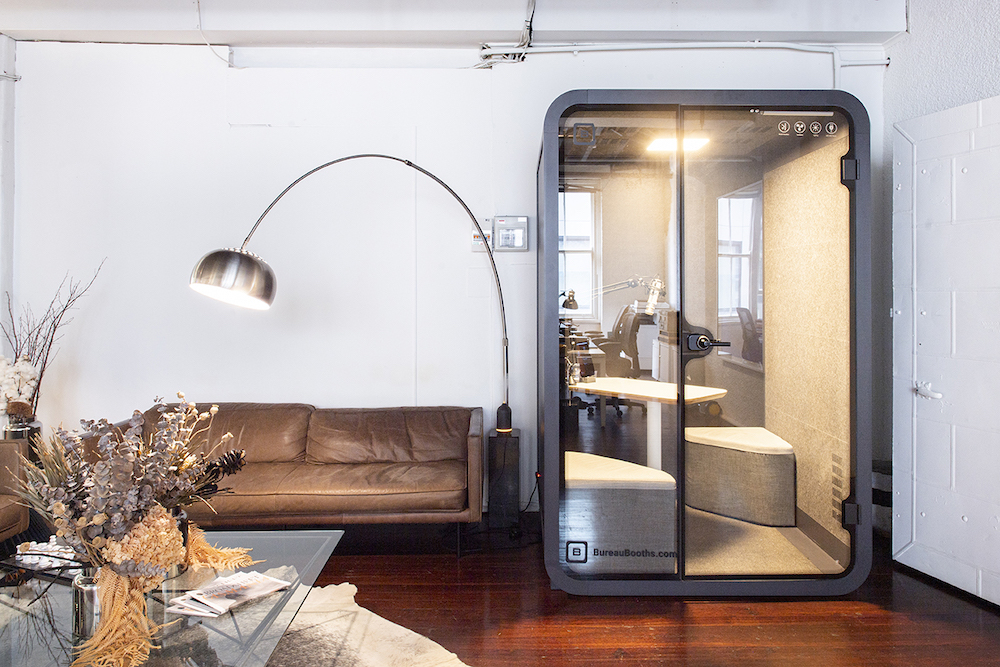With co-working office Desk Space, entrepreneur Steven Arthur encourages new business and brings talent together under one roof. We sit down with Arthur to find out how Desk Space works, his tips for new startups and his take on the future of co-working.

Desk Space isn’t your typical co-working office. When Steven Arthur founded the company in 2009, he wanted to take the concept in a new direction. “In the traditional share offices back in 2009, you were kind of an afterthought because there was an agency or a company that you were sharing space with,” says Arthur. “Desk Space was designed to cater towards you as an individual, whereas these spaces were just using you to supplement some of their rent.”
The idea was to create a shared workspace built around collaboration. The Darlinghurst office was set up with communal and open plan spaces to encourage freelancers and businesses to mingle, support each other and work on projects together. Although it has always existed for creatives like graphic designers and digital marketers, Arthur sees Desk Space as a support network for new business in general. “Over the last 13 and a half years, we’ve had so many great, successful businesses call Desk Space home and there have been a series of new partnerships and new ventures that have developed within the space that have all done exceptionally well.”
If Desk Space is designed as a feeding ground for new businesses, Arthur himself has always led by example. Desk Space is a successful startup in its own right but Arthur has collaborated with those in the office to found two new startups - digital healthcare company Health Bank and office catering service Your Order. Part of the challenge for startups is risk, and Arthur designed Desk Space to both mitigate risk and draw in those who are happy to take some on. “For me, I find that those who are really interested in doing their own thing and who are willing to take those risks, I find them quite attractive. I feel like they’re inspiring and that’s why being in an environment that’s full of similar personalities, it does add a lot of value.”
For those looking to follow his lead as an entrepreneur, Arthur has a few words of advice. “With all startups I think tenacity is definitely needed,” he says. “I think that you have to be fairly resilient and you have to really care about what it is that you’re building. And second to that is, there’s always external organisations that are growing around you, so [don’t] be influenced by others and just run your own course. Stay focused on your purpose and ensure that there’s no distractions.”

The past few years have seen working models undergo unprecedented change. Before he started Desk Space in 2009, Arthur was working from home as a designer but craved the positive interactions of working with others. Now, with the rise of a hybrid home/office model, workers everywhere are cherry picking the best of both worlds. Arthur, though, sees co-working models like Desk Space as only becoming more important in the future. “I actually don’t think [hybrid work] will have a long term effect on office space,” he says. “What I do think is that office space, like any industry, needs to go through iterations and new design and I think, one of the things we offer as a service is a sociable aspect and the collab piece has kept our retention really high.”
As for those aspiring business leaders just getting off the ground, Arthur sees a bright future. “There’s plenty of opportunity out there now, not just co-working but in terms of building businesses and startups altogether,” Arthur says. “There’s been great support from government, there’s been a number of new VCs and private equity firms who are interested in supporting businesses and I think people’s appetite towards startups in general, whether you’re a service provider or a small agency, is abundant.”
This article is produced by Scout Jobs in partnership with Desk Space.
Photography: Yusuke Oba





